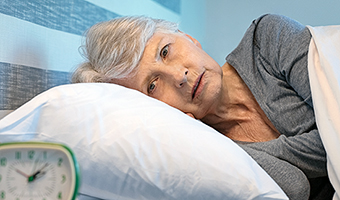Help Seniors Battle Holiday Blues
For many, the holidays are the best time of year filled with family get-togethers, feasts and fun traditions; but for seniors, this can be the most depressing of all seasons as they pine for lost loved ones. And in a lot of cases, with family hundreds of miles away, seniors struggle to decorate, shop, prepare a meal and start to feel sad that they can’t move around like they did when they were younger.
Roughly 1 in 4 seniors (age 65 or older) suffers from depression. More than 70 percent of older Americans feel isolated and lonely. And, nearly one-third of all non-institutionalized older Americans live alone.
The Holiday Blues vs. Senior Depression
The holiday blues are often temporary and go away when the season ends. The holiday blues are also associated with the time change – as daylight hours become shorter. If the blues continue after the season, it could be a warning sign of depression.
Senior depression is often mistaken for other age-related issues. In fact, stress-related events such as the holidays may trigger half of all depressive episodes, according to the U.C. Davis Department of Psychiatry and Behavioral Sciences.
Common signs of senior depression include:
- Lack of appetite
- Extreme fatigue – excessive sleeping. The body shuts down to escape from the outside world
- Problems concentrating
- Anti-social – may stop doing normal things such as going to church
- Older adults may not express sadness (unlike kids with depression)
- Abuse of drugs or alcohol
- Being angry – sarcastic and criticizes others’ joy of the season
Tips to beat depression include:
- Encourage seniors to exercise – Various studies reveal that staying physically active not only makes people feel good but it has the same effect on mood and brain chemistry as antidepressants.
- Keep alcohol use to a minimum – Alcohol is a known depressant. Visiting Angels caregivers can create some other festive drinks such as eggnog or a flavored hot chocolate to help seniors cheerfully toast to the season.
- Don’t feel obligated to buy lots of gifts – Giving certainly can make you feel good but in times of financial despair, giving gifts can create a lot of stress. Instead, Visiting Angels caregivers can help seniors write and send personalized cards to family and friends.
- Stay connected socially – Volunteer at a soup kitchen (or other organization) with a caregiver – giving back greatly improves people’s moods and increases their sense of self-worth. Caregivers can also teach seniors how to use computers or cell phones to stay socially connected with family and friends. They can take seniors to a local coffee shop or to look at Christmas lights for some holiday cheer outside the home.
- Be a good listener – Sometimes all it takes to help a senior with the holiday blues is to simply listen. Through conversation, caregivers can help seniors live in the present (instead of dwelling on “the good old days”) and keep their holiday expectations realistic.
Visiting Angels Can Help Seniors Battle the Holiday Blues
Visiting Angels, one of our nation’s largest in-home senior care companies, offers local families the vital service of hiring senior loved ones a holiday companion. Don’t know what to get Grandma or Grandpa for Christmas? How about a friend, or better yet, an angel - a Visiting Angel that is! A holiday companion is also a priceless gift that adult children can give themselves this year – Visiting Angels can provide them with an angel to tend to their senior loved ones’ every need as they prepare for a house full of guests or holiday event.
“The holidays can be tough on seniors because many have lost people they loved. Plus, they aren’t as mobile to visit friends and family or even decorate or shop,” says Larry Meigs, CEO of Visiting Angels. “Our caregivers socialize with seniors, take them visiting and keep them engaged instead of sitting at home feeling isolated and depressed. Plus, our caregivers give families the heads up about their senior’s state-of-mind, to differentiate between the holiday blues and full blown depression.”













